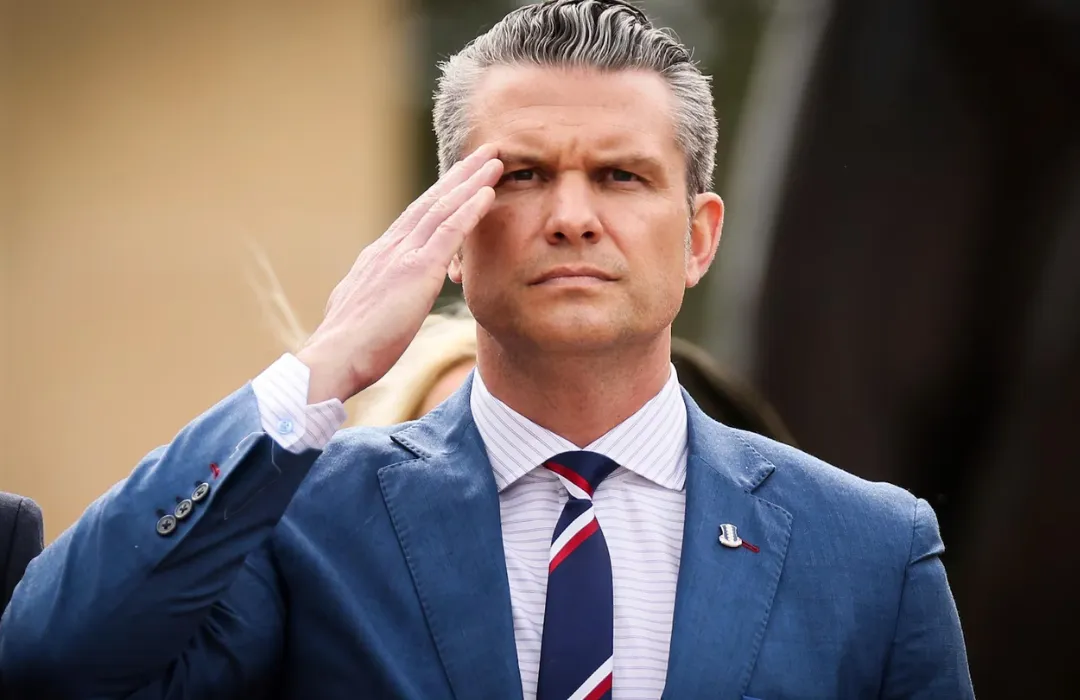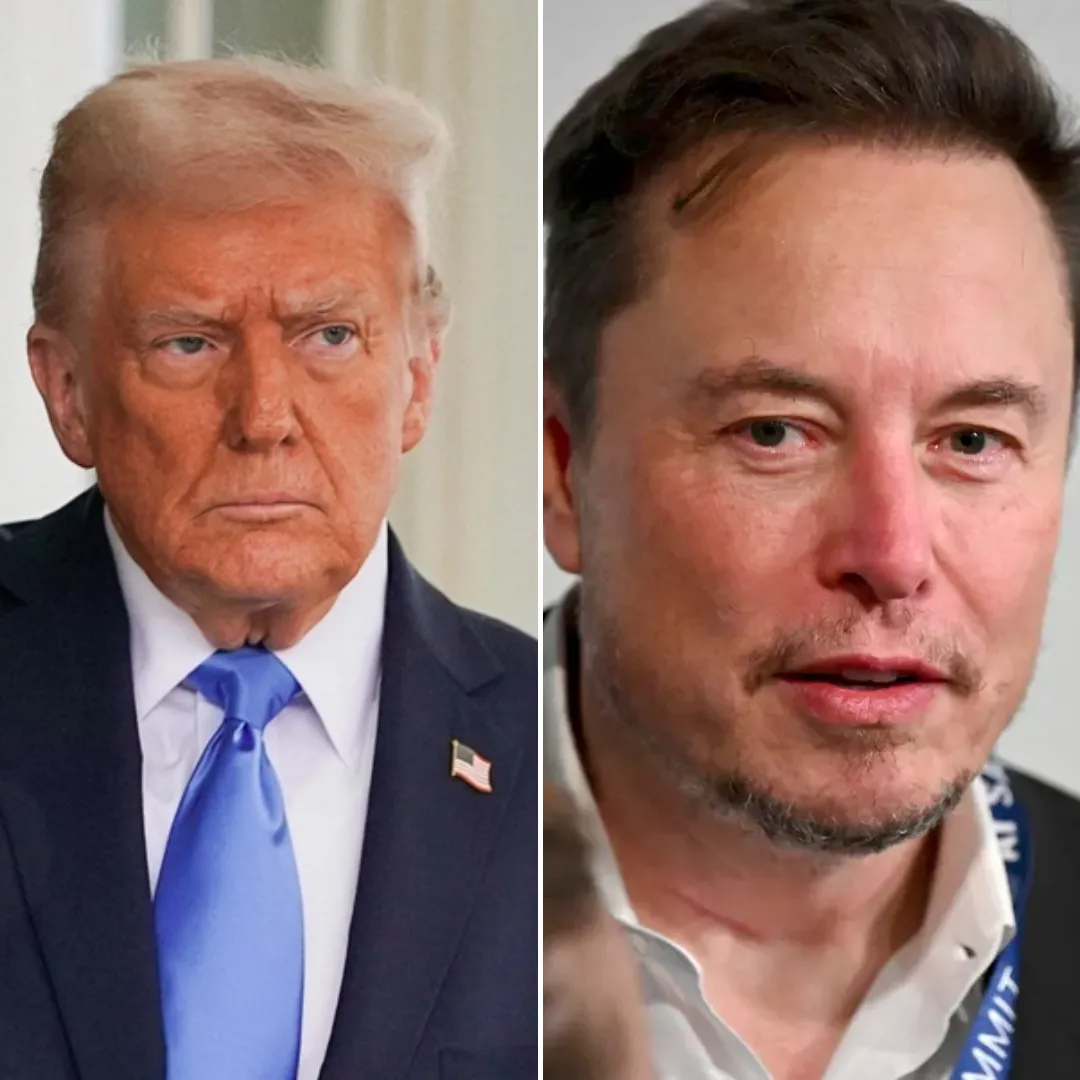
President Donald Trump expressed disappointment with the state of the Kennedy Center after touring the venue for the first time in his new role as chair of the performing arts institution. In his first official visit after taking on the role, Trump described the Kennedy Center as being in "tremendous disrepair," blaming much of the deterioration on what he called "bad management" over the years.
Trump, who has a background in real estate development, vowed to improve the facility, calling it “emblematic of our country.”
Trump’s remarks came on Monday after he toured the Kennedy Center and met with board members for the first time since being appointed chair. The former president emphasized the importance of the institution, describing it as a significant part of Washington, D.C., and the nation at large.
“It represents a very important part of D.C. and actually our country,” Trump said. He reiterated his commitment to restore the center, claiming that while it holds “tremendous potential,” it was in need of significant improvements.
“It’s in tremendous disrepair, as is a lot of the rest of our country, most of it because of bad management,” Trump told reporters after his visit, which was marked by his inspection of various structural components of the center. Trump particularly criticized the Kennedy Center for having invested large sums in underground rooms that he felt were unnecessary and would likely remain unused.
Although it was not immediately clear which specific areas Trump was referring to, the Kennedy Center had undergone a major expansion project in 2019, costing $250 million. The expansion included several new spaces and enhancements aimed at improving the facility’s functionality.
The renovation project earned the center an award, but Trump appeared unimpressed with certain elements of the expansion.
During his visit, Trump emphasized that fixing the Kennedy Center would require working closely with Congress. “We’re going to fix it up, but it’s really emblematic of our country,” he said, suggesting that restoring the facility was not just a matter of improving a cultural landmark but also a symbol of broader issues facing the nation.

Trump’s visit to the Kennedy Center marked the first time he had been to the venue since announcing in February that he would take on the role of chair of the board. At the time, he also made waves by vowing to remove multiple members of the center’s board, citing concerns that the Kennedy Center had become too “woke.”
As part of his overhaul, Trump appointed Richard Grenell, his former envoy for special missions, as the center’s interim executive director. Trump’s comments on the center reflected his ongoing efforts to reshape the institution’s leadership and direction.
“We took over the Kennedy Center. We didn’t like what they were showing,” Trump said in a statement last month, referring to the programming and the direction taken by the previous leadership.
He added that his leadership would ensure the Kennedy Center no longer adhered to “woke” values, a term he has used to criticize what he perceives as excessive political correctness in the arts and culture sectors.
Trump was joined on his visit by Richard Grenell, Vice President Usha Vance, his chief of staff Susie Wiles, and several new board members he had appointed, including Fox News hosts Laura Ingraham and Maria Bartiromo, and country music singer Lee Greenwood. These new appointments are part of Trump’s broader effort to reshape the Kennedy Center in line with his vision of promoting American traditions and values.
Ahead of Trump’s visit, White House press secretary Karoline Leavitt stated that the president hoped to restore arts and culture that “embrace American tradition” and avoid what he saw as the negative influence of recent years. Leavitt explained that Trump’s background as a business developer would guide his efforts to improve the Kennedy Center, both in terms of its physical infrastructure and its future programming.

She also hinted that the president would likely discuss upcoming shows, musicals, and other theatrical programs under his leadership.
Trump’s decision to take over the Kennedy Center’s board sparked considerable backlash from those associated with the institution, particularly artists and performers who felt the move was politically motivated. Several high-profile figures, including Ben Folds, Shonda Rhimes, and Renée Fleming, stepped down from their roles at the center following Trump’s actions.
Actress Issa Rae also canceled her performance at the Kennedy Center, citing her opposition to what she saw as an infringement on the institution’s values.
In addition to the resignation of several board members, Vice President Vance faced criticism during a recent visit to the Kennedy Center. She was jeered by audience members while attending a National Symphony Orchestra performance, an incident that further fueled the controversy surrounding Trump’s takeover of the institution.
During his first term in office, Trump avoided the Kennedy Center, breaking with tradition by not attending the annual Kennedy Center Honors ceremony, where artists are recognized for their contributions to culture. This was partly due to several performers being honored at the event who publicly criticized Trump.
However, in his second term, Trump has taken a more active role in the Kennedy Center’s leadership, aiming to reshape the institution and its offerings to align with his political and cultural priorities.
Asked what he would tell potential audience members considering attending a performance at the Kennedy Center, Trump remained optimistic about the institution's future. "I’d say, come here and see a show,” he said, expressing confidence that the center would improve physically and in terms of its programming under his leadership.
Although Trump acknowledged that he was not a fan of the musical “Hamilton,” which recently announced the cancellation of its scheduled Kennedy Center run, he expressed a positive outlook for the future of Broadway productions and other shows at the center.

In summary, Trump’s remarks and actions surrounding the Kennedy Center reflect his broader push to overhaul cultural institutions that he perceives as promoting progressive values at the expense of traditional American ideals. While his critics have expressed concern about the politicization of the arts, Trump remains committed to his vision of revamping the Kennedy Center and ensuring that it better reflects the values he champions.
-1747713925-q80.webp)


-1747715856-q80.webp)